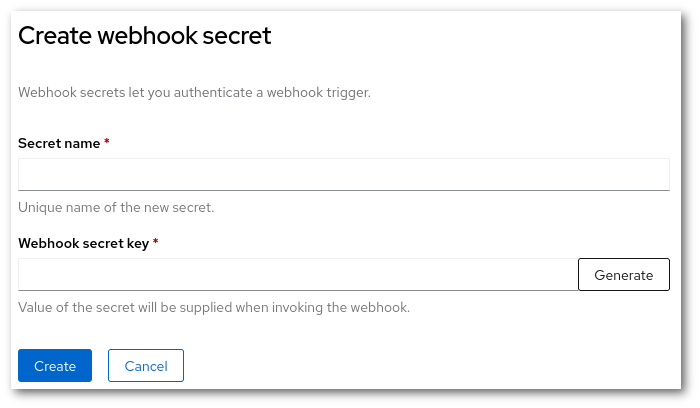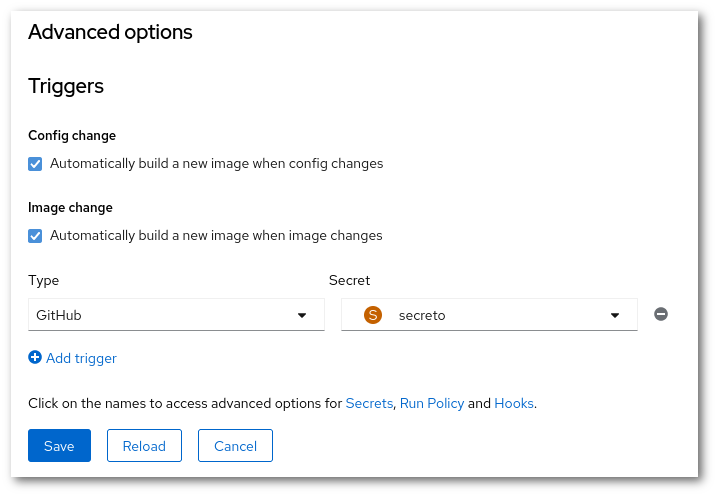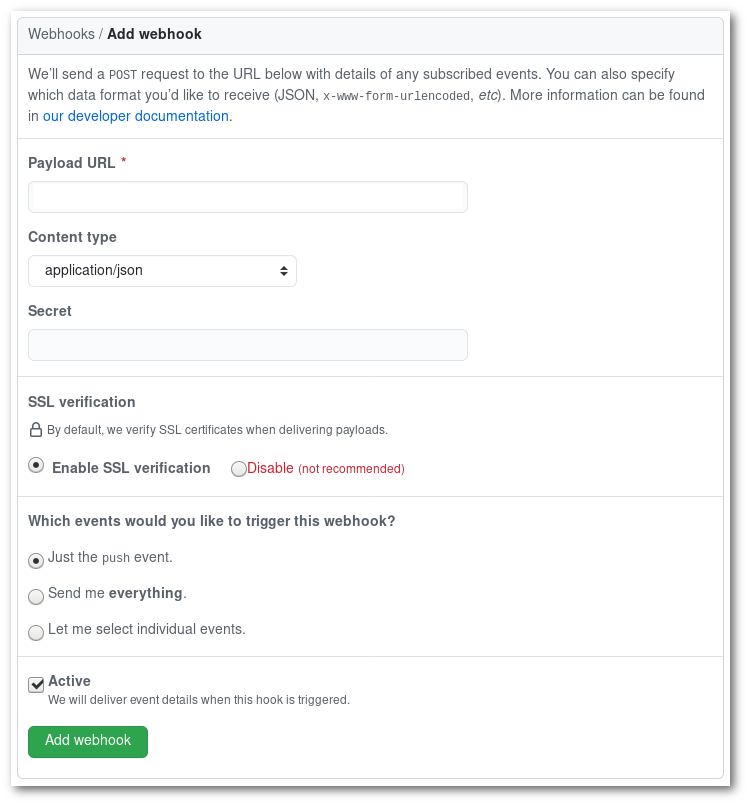Webhooks
Webhooks are URLs that allow triggering actions in a system. Rahti 2 supports webhooks to trigger rebuilds. This means that each BuildConfig is listening to a particular URL that includes a secret (more about that later), and that when this URL is called, a build will be triggered for a default branch.
Default branch name
In Rahti 2 the default branch name is master. Branches named otherwise (e.g. GitHub's default value main) will be ignored, so make sure that both sides use the same branch name.
There are few types of formats supported: Generic, GitHub, GitLab and Bitbucket. This means that if the source code of the application is in Gitlab, the Gitlab URL type must be selected.
In this example we will use the GitHub type.
Creating a secret
In the Developer menu, go to the Secrets page. Make sure that you are in the right project and then click in Create -> Webhook secret. Write any sensible name. And click in Generate. Write down the generated secret. And Save.

Getting the URL
You need an already created BuildConfig object, or create a new one. In order to create a new BuildConfig, check out the Creating an image article.
Now you need to edit the build config (Actions -> Edit BuildConfig), and add a trigger. To do this, click in "Trigger", in the bottom of the edit page, in the "Advanced options" section. Then, click in "Add trigger". The new trigger must have a type, in our case it will be "GitHub". It also needs a secret, select the secret you created in the previous step.

When the BuildConfig is configured, you can get the URL via the webinterface. Using the Developer menu, go to the Builds page, and select the BuildConfig. In the Webhooks section, you will see "Copy URL with Secret". Click on it, and the URL will be in your clipboard.

GitHub
Once you got the URL and the secret, go to https://github.com. There you should go to the repository where the code is, and in Settings -> Webhooks, click in "Add webhook".

You just need to fill up the "Payload URL" and the "Secret", and change the content type to Application/json.

